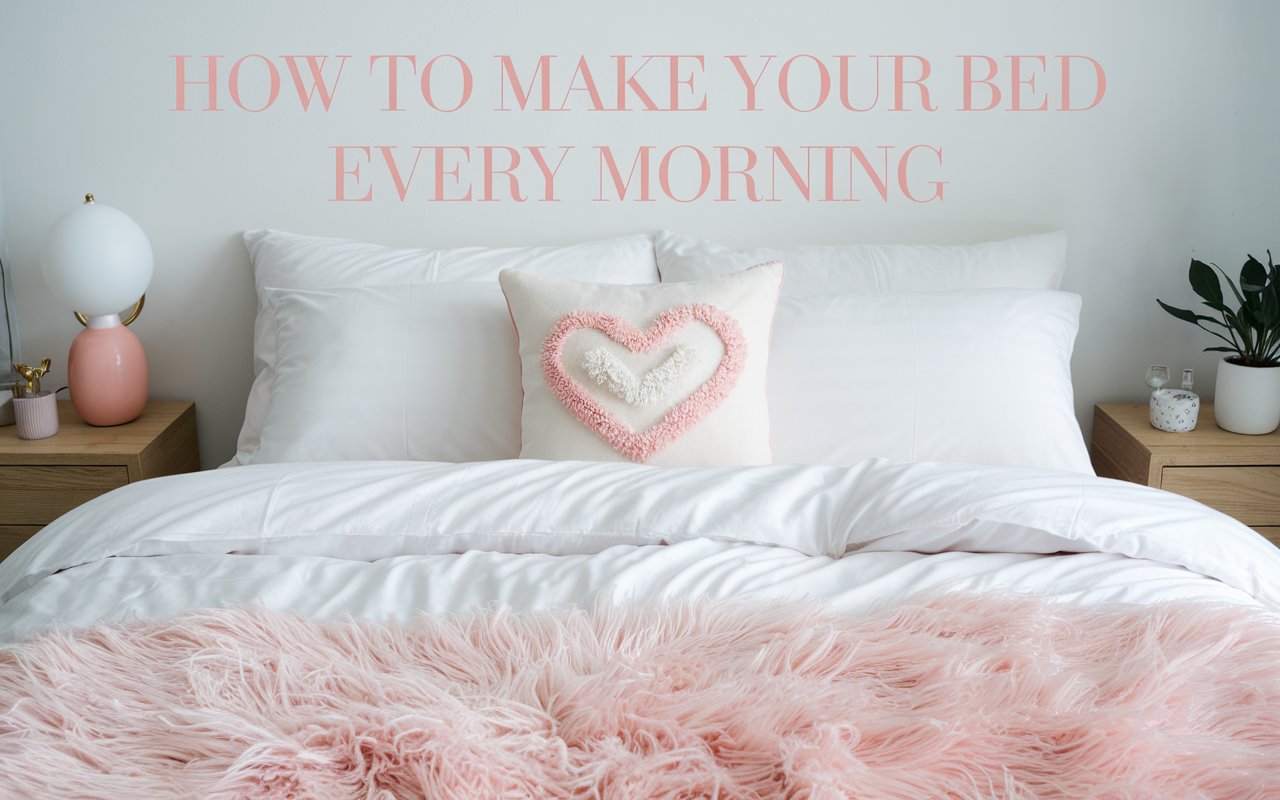Starting your day right can be simple. Making your bed is a small act that brings big results. Many skip this habit, but it can change your mindset.
I used to ignore it too. But once I started, my mornings felt better. It’s not just about tidiness; it’s about setting a tone for the day.
This blog will show you why this habit matters. We’ll cover its benefits, how to do it, and what mistakes to avoid. Let’s learn how this small task can improve your life.
Key Takeaways
- Making your bed every morning boosts your productivity.
- A tidy room helps reduce stress and promotes good sleep.
- Simple steps make the habit easy to follow.
- Avoiding common mistakes ensures long-term success.
Why Making Your Bed Every Morning is Important
This habit isn’t just about cleanliness. It’s a mindset. Starting your day with order builds momentum. You feel accomplished before doing anything else. This feeling can carry through the day.
According to Charles Duhigg, author of The Power of Habit, making your bed can lead to other positive behaviors. It becomes a “keystone habit.” Once I started, I noticed I became more organized.
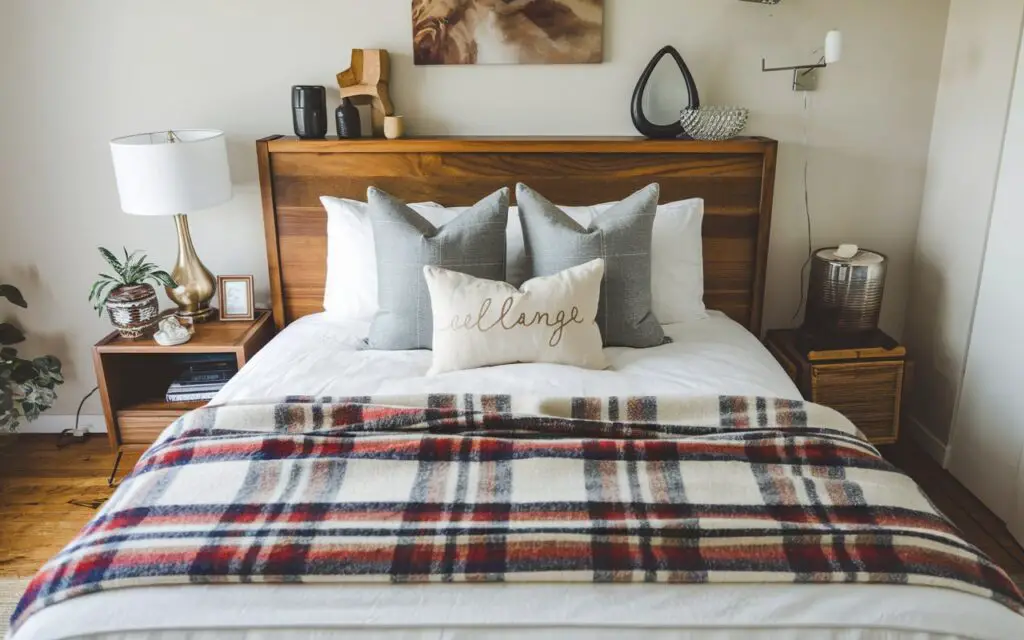
Here’s why it matters:
- Sets a productive tone: One task done motivates you to tackle others.
- Promotes discipline: It shows commitment to self-care.
- Reduces stress: A clean space leads to a clear mind.
Benefits of a Tidy Bed and Room
A tidy room isn’t just visually appealing; it’s life-enhancing. Clutter drains energy. A neat space helps focus. I used to leave my room messy. I didn’t realize it affected my mood. Once I cleaned up, everything felt better.
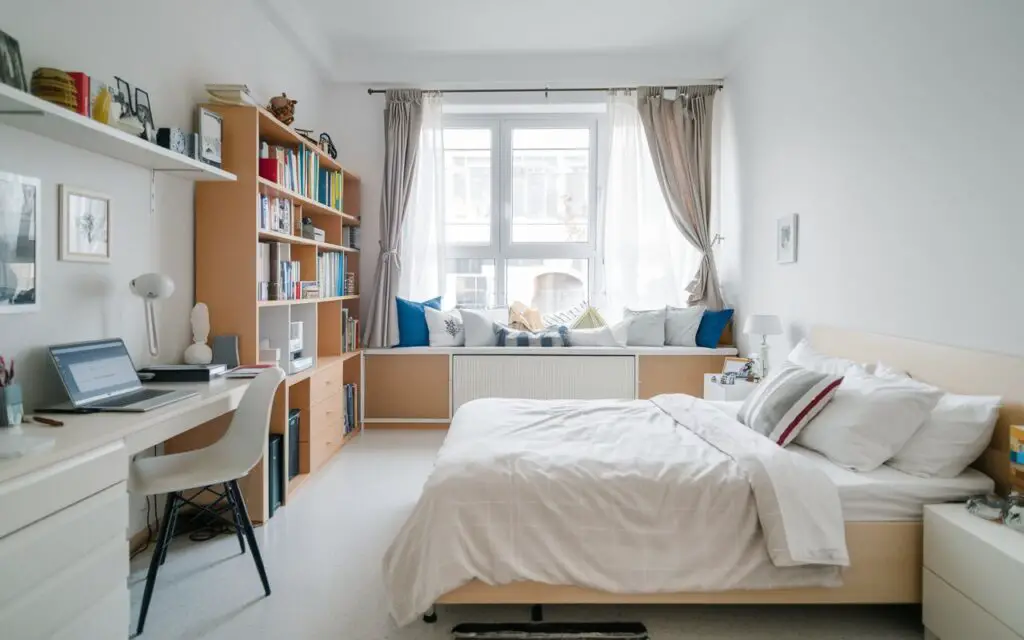
Mental Benefits
- Reduces anxiety.
- Improves focus and decision-making.
- Increases overall happiness.
Physical Benefits
- Reduces allergens and dust.
- Keeps sheets fresh and clean.
- Improves the quality of sleep.
Here’s a quick comparison of messy versus tidy spaces:
| Messy Room | Tidy Room |
| Causes stress | Promotes calmness |
| Distracts focus | Enhances concentration |
| Feels overwhelming | Feels inviting |
Quick and Simple Steps to Make Your Bed
Making your bed doesn’t take long. A few minutes is all you need. Follow these steps:
- Remove pillows and blankets: Start with a clear surface.
- Smooth the sheets: Remove wrinkles for a polished look.
- Tuck in the sides: Secure edges neatly.
- Add blankets and duvet: Place them evenly.
- Arrange pillows: Stack or place them decoratively.
This sequence ensures consistency. It becomes second nature over time. Stick to it, and you’ll never skip this task again.
How Bed-Making Improves Productivity and Mood
Completing one small task leads to bigger wins. A productive morning starts with a simple habit like making your bed. This routine signals your brain to focus.
When I started making my bed daily, I felt more in control. Small wins boost confidence. It’s like telling yourself, “I’ve got this.”

Science Supports It
A study by the National Sleep Foundation found that people with a tidy bedroom report better sleep. Better rest improves mood and performance.
Why It Works
- Creates a sense of accomplishment.
- Helps develop discipline.
- Encourages a positive mindset.
Creating a Morning Routine with Simple Habits
Your morning sets the tone for the day. Adding simple habits can transform your routine. Start small, and build over time.
My routine began with making my bed. Soon, I added journaling and stretching. These small changes made a big difference.
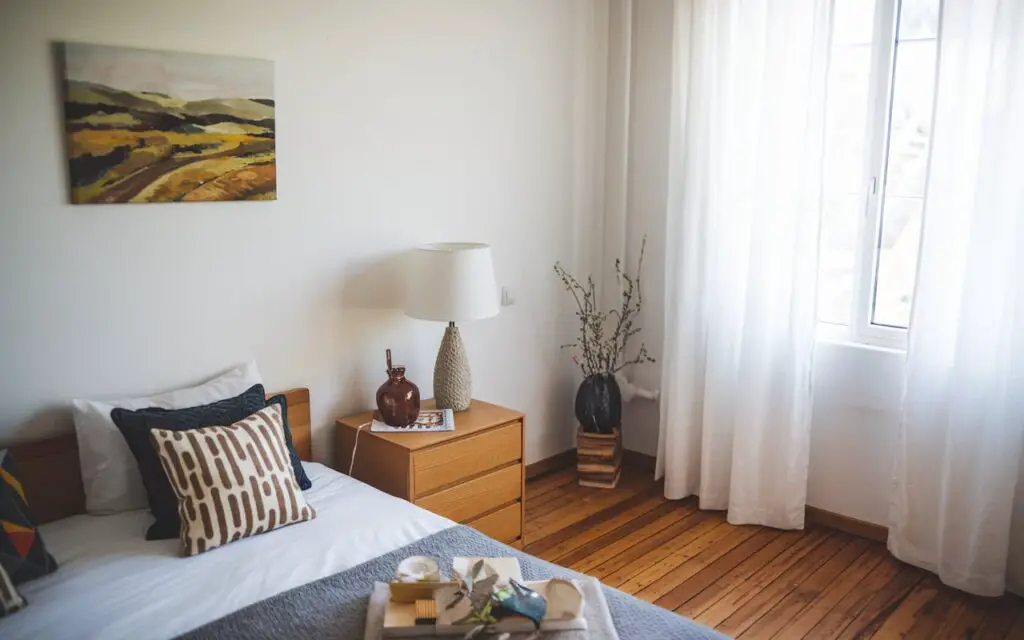
Here’s a sample routine:
- Wake up at the same time every day.
- Drink water to stay hydrated.
- Make your bed for a fresh start.
- Plan your day or write in a journal.
Each step takes minutes. Together, they create a foundation for success.
Transform Your Bedroom into a Relaxing Space
Your bedroom is more than a sleeping area. It should feel calm and inviting. Transforming it doesn’t need to cost much. Small adjustments work wonders.
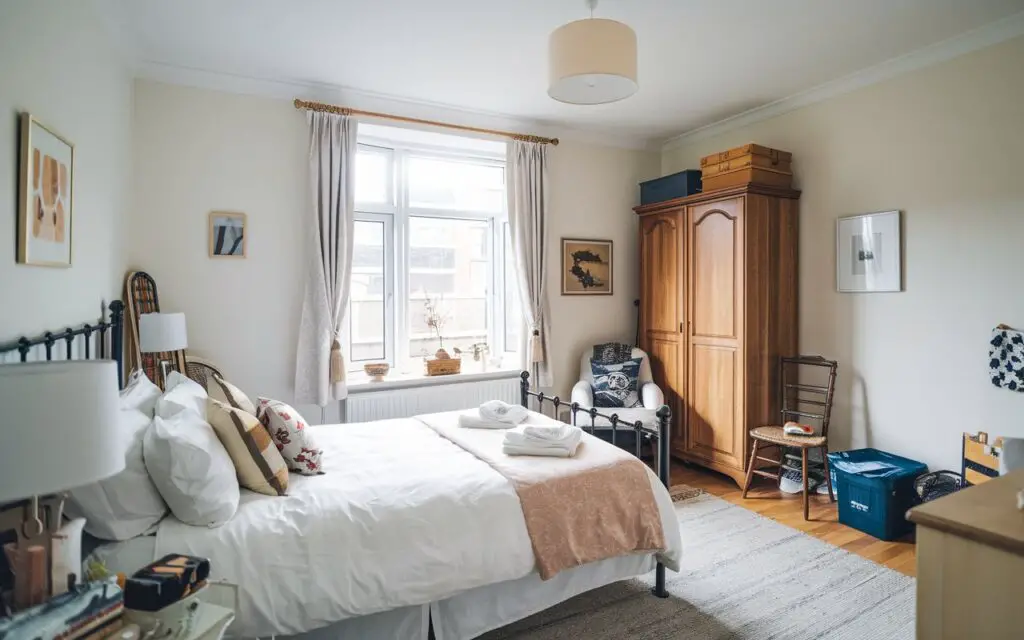
Ideas to Try
- Use soft lighting.
- Keep surfaces clutter-free.
- Add plants for freshness.
A well-organized space makes the habit of bed-making enjoyable. When your room feels good, you’ll want to keep it tidy.
Avoid These Common Bed-Making Mistakes
Even small habits can go wrong. Avoid these common mistakes to stay consistent:
- Skipping steps: Don’t rush through. Follow the process.
- Using dirty sheets: Always ensure clean linens.
- Overloading with pillows: Keep it functional.
These errors can make the habit harder. Keep it simple, and it becomes a joy, not a chore.
How a Tidy Room Can Enhance Your Sleep
Good sleep starts with a calm space. A tidy room promotes relaxation. Studies show that people sleep better in clean bedrooms.
Before bed, I make sure everything is in place. No clutter means fewer distractions. This helps my mind wind down.
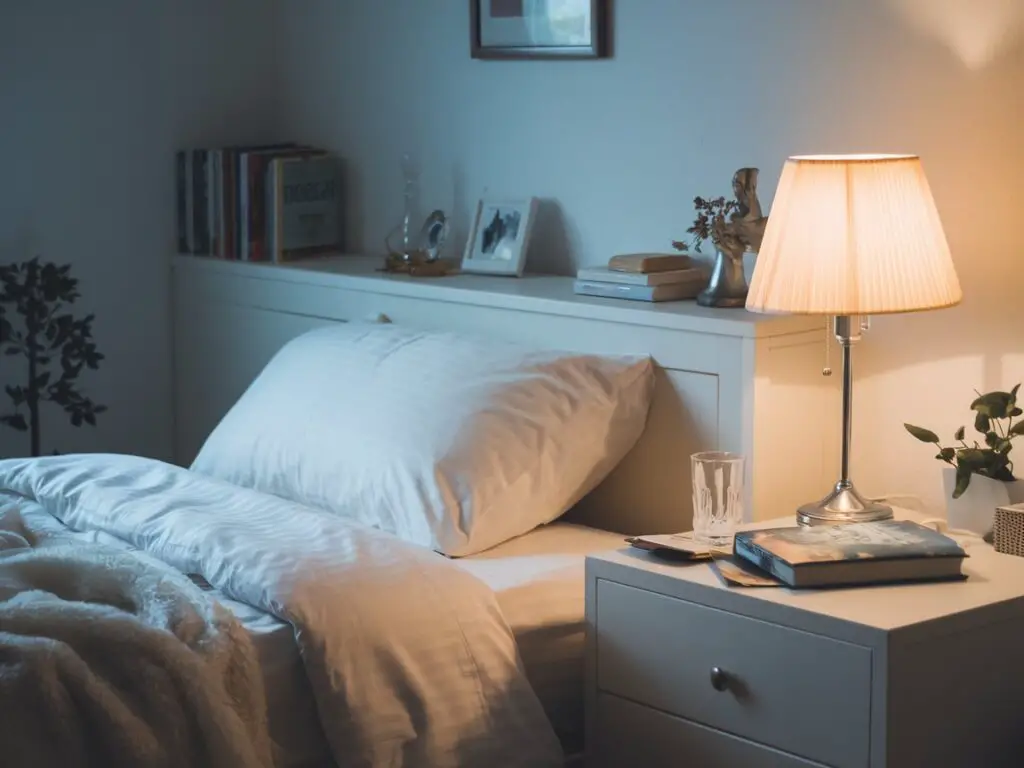
Tips for Better Sleep
- Keep your room dark and quiet.
- Avoid using screens before bed.
- Use soft, breathable sheets.
When your space is ready, sleep comes easily.
The Psychology Behind Bed-Making
Bed-making might seem minor, but it impacts your mindset. Psychologists suggest that small habits create a ripple effect in life. Making your bed signals your brain to prioritize order and discipline.
When you walk into a room with a neatly made bed, it feels inviting. This simple visual cue encourages relaxation and focus. It also instills a sense of pride and accomplishment.
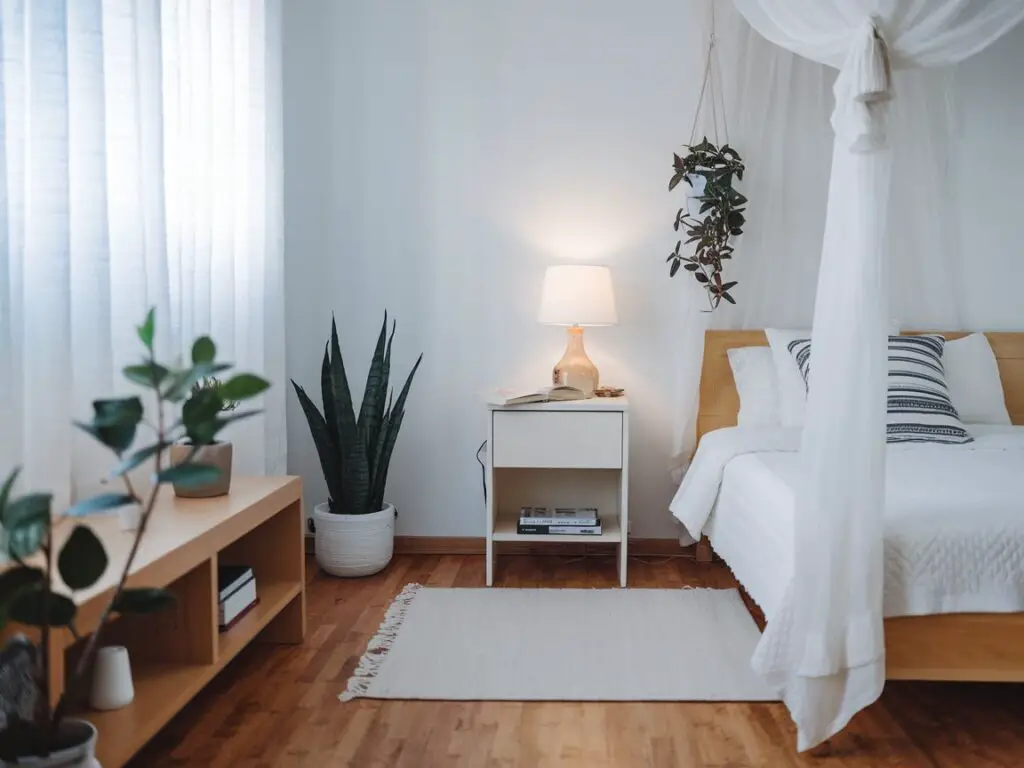
Why It Matters
- Boosts self-discipline.
- Reinforces a positive morning mindset.
- Enhances overall mental health.
How Bed-Making Reflects Your Personality
Your bed says a lot about you. A tidy bed often reflects organization and mindfulness. Leaving it messy can indicate a rushed or chaotic lifestyle.
Think about it: a well-made bed feels inviting and peaceful. It creates an image of someone who values order and routine. Embracing this habit can shift how you view yourself.
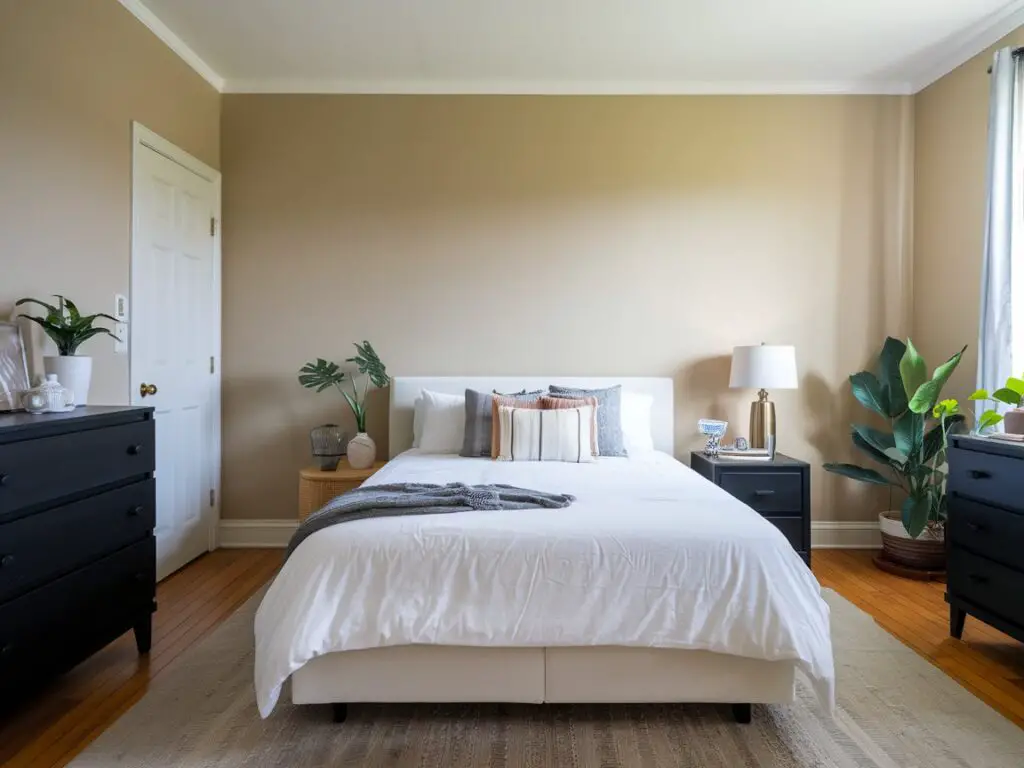
Traits Linked to Bed-Makers
- Organized and detail-oriented.
- Goal-focused and motivated.
- Calm and thoughtful.
The Connection Between Clean Spaces and Mental Health
A cluttered room can lead to a cluttered mind. Research suggests that disorganized environments increase stress. A clean, organized space promotes mental clarity and peace.
Making your bed is an easy way to start decluttering. It sets the stage for keeping the rest of your room neat.
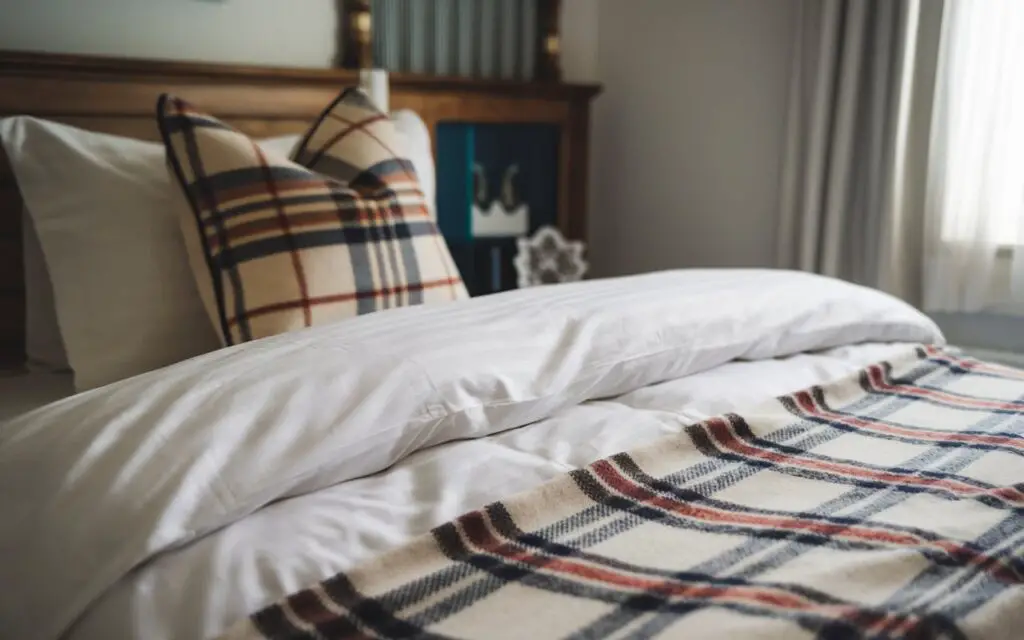
Quick Decluttering Tips
- Spend five minutes tidying daily.
- Use storage bins for small items.
- Donate unused clothes or linens.
Fun Bed-Making Challenges to Try
Turning a task into a challenge makes it fun. Why not challenge yourself or your family to make their beds every day for a week?
You can reward yourself for sticking to the habit. For families, a chart with stars or checkmarks works well.
Challenge Ideas
- Speed Test: Time how fast you can make your bed neatly.
- Decor Style: Try arranging pillows or blankets differently each day.
- Weekly Commitment: Make your bed daily for seven days straight.
Inspirational Quotes to Motivate Your Routine
Adding some motivation can help stick to this habit. Here are a few quotes to inspire:
- “Small habits build great lives.”
- “Success starts with the smallest actions.”
- “A tidy bed, a tidy mind.”
Use these as reminders when you feel like skipping the task.
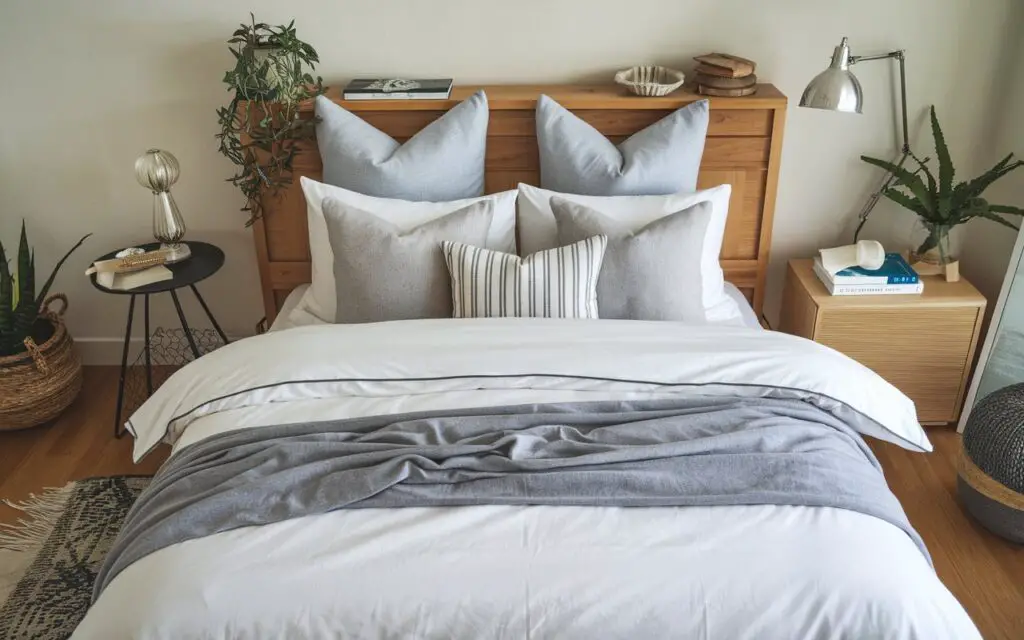
FAQs About Make Your Bed Every Morning
How can a tidy room improve my sleep?
Clean spaces create a calm environment. This makes relaxation easier.
What are the benefits of simple habits?
Small actions lead to big results. They boost productivity and improve focus.
How does making your bed every morning impact your mental clarity?
Making your bed every morning creates a sense of accomplishment early in the day. It sets the tone for order and discipline, clearing mental clutter. A tidy bed reduces visual distractions, making it easier to focus on tasks ahead.
What are the long-term health benefits of maintaining a tidy bedroom?
A clean and organized bedroom improves air quality by reducing dust and allergens. It also promotes better sleep hygiene, reducing the risk of sleep-related issues. Over time, this can enhance overall health, including lower stress levels and better immune function.
Can a cluttered room really affect your sleep quality?
Yes, a cluttered room can interfere with relaxation. Disorganized spaces can create subconscious stress, making it harder for your mind to wind down. A clean, tidy room helps signal your brain that it’s time to rest, improving sleep quality.
How does a clean room contribute to reducing stress and anxiety?
A clean space promotes a sense of control and calm. It minimizes the visual and mental noise that clutter creates, which often contributes to feelings of overwhelm. Starting with small tasks, like making your bed, can reduce stress and foster a more peaceful environment.
What are some common mistakes people make when trying to keep their beds tidy?
Some people skip essential steps like properly straightening the sheets or fluffing the pillows, leading to a messy look. Using too many decorative pillows can also make the bed harder to maintain. Additionally, not cleaning bedding regularly can diminish the overall tidiness and hygiene of the space.
Final Thoughts
Making your bed every morning is more than just a chore. It’s a small but meaningful step toward creating a peaceful and organized life.
This simple habit builds discipline, improves your mood, and sets the tone for a productive morning.
As you commit to this daily routine, you’ll notice other positive changes. Your tidy room becomes a place of comfort, your mornings feel more structured, and your evenings become more relaxing.
Remember, it’s not about perfection. The effort counts. Starting small, with simple habits, can lead to a ripple effect in other areas of life. Give yourself the chance to experience how a made bed can bring calm and focus to your day.
So tomorrow morning, take a few minutes to pull up the sheets, fluff the pillows, and smooth out the covers. You’ll thank yourself for it later!
